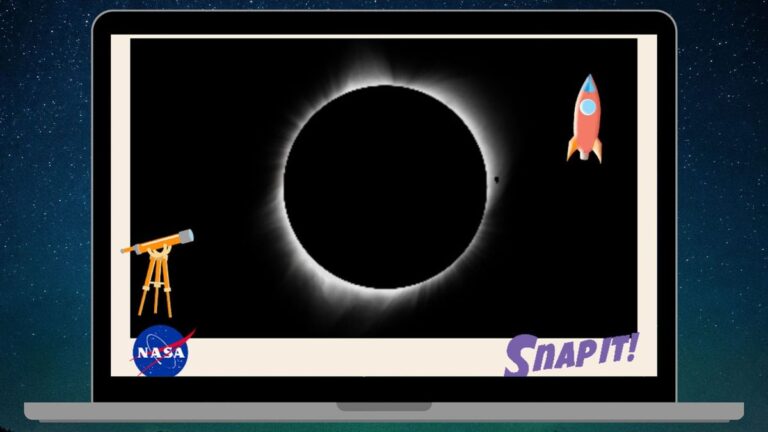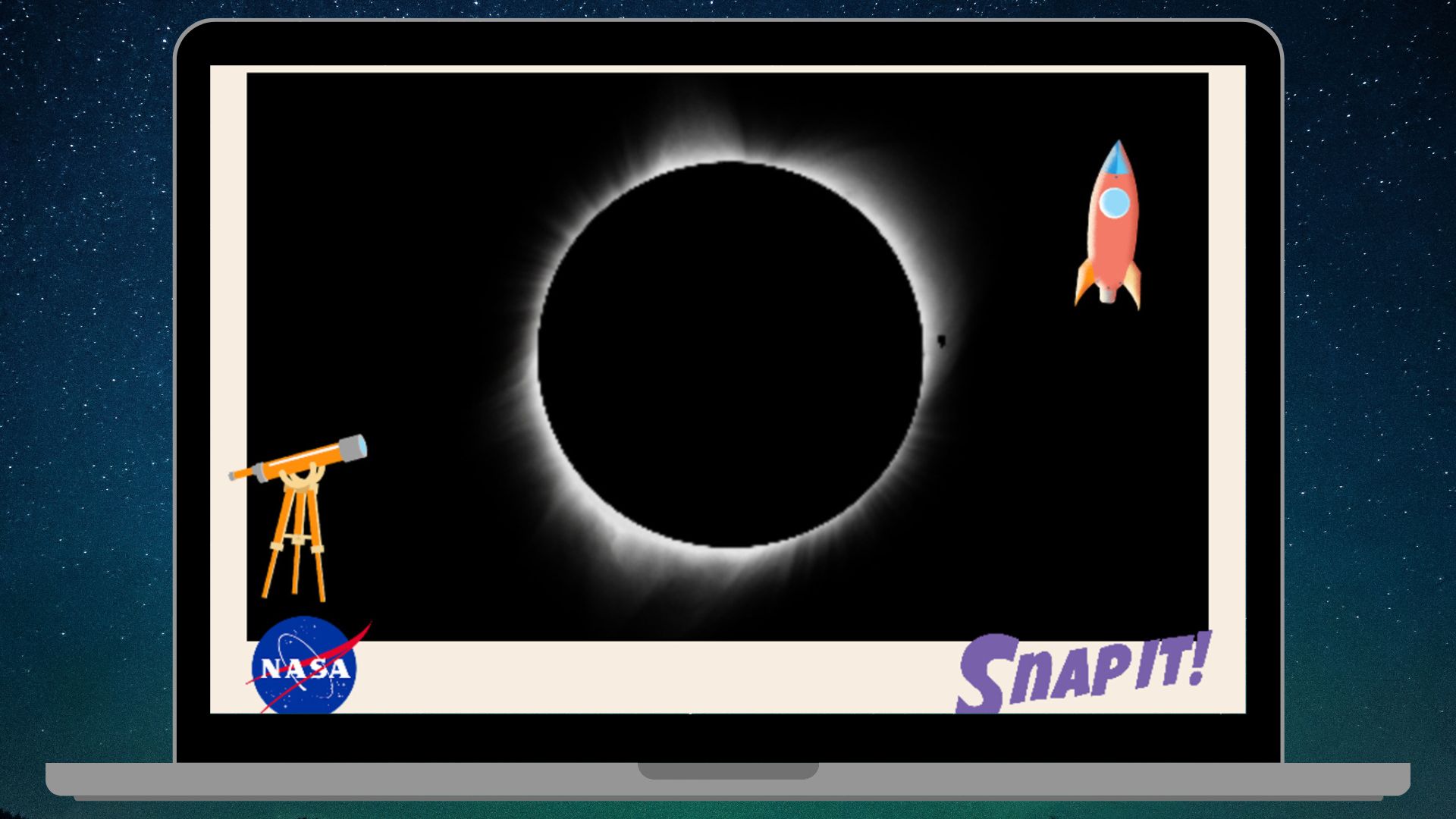
[ad_1]

NASA has launched a new computer game to help kids learn about solar eclipses ahead of the total solar eclipse on April 8 when the moon’s shadow will sweep across North America.
The “Snap It! An Eclipse Photo Adventure” game asks players to help an interstellar traveler take photos of the sun on their trip to Earth. The game is designed for kids ages seven and up, with lessons on how the moon blocks the sun’s light during a solar eclipse.
The total solar eclipse on April 8 will pass over Mexico, the United States and Canada. Beginning over the South Pacific Ocean, the first location to experience totality will be Mexico’s Pacific coast around 11:07 a.m. PDT. The eclipse will then pass over 15 U.S. states and exit continental North America on the Atlantic coast of Newfoundland, Canada, at 5:16 p.m. NDT, according to NASA.
Related: What will it be like to experience the total solar eclipse 2024?
The educational Snap It! game features an alien character visiting Earth from a planet that doesn’t experience solar eclipses, which occur when the moon passes between Earth and the sun. The goal of the game is to snap 20 photos of eclipses and other objects that transit, or pass in front of, the sun.
The game, which can be played on any computer connected to the internet, encourages kids to use their keyboard and mouse to help the alien traveler take photos of the sun. The photos are compiled in an album with information about each of the different objects, such as the Parker Solar Probe, that pass in front of the sun. Then, players can create and download virtual postcards to share with friends and family.
During the total solar eclipse on April 8, the moon appears almost exactly the same size as the sun, blocking the entire disk for viewers within the path of totality, which is 100 to 123 miles (162 to 200 kilometers) wide, for a few minutes. In turn, observers will have a view of the sun’s outer atmosphere, known as the corona.
If you’re planning to watch the solar eclipse on April 8, be sure to check out our guide to observe the sun safely. Everyone observing the partial phases of this eclipse —. and those outside the path of totality — will need to wear solar eclipse glasses and equip cameras, telescopes and binoculars with a solar filter at all times. Only those in the path of totality will be able to briefly see the sun’s corona with their naked eyes.
Keep up to date with the latest eclipse content on our eclipse live blog and watch all the total eclipse action unfold live here on Space.com.
Editor’s Note: If you snap an amazing solar eclipse photo and would like to share it with Space.com’s readers, send your photo(s), comments, and your name and location to [email protected].
[ad_2]